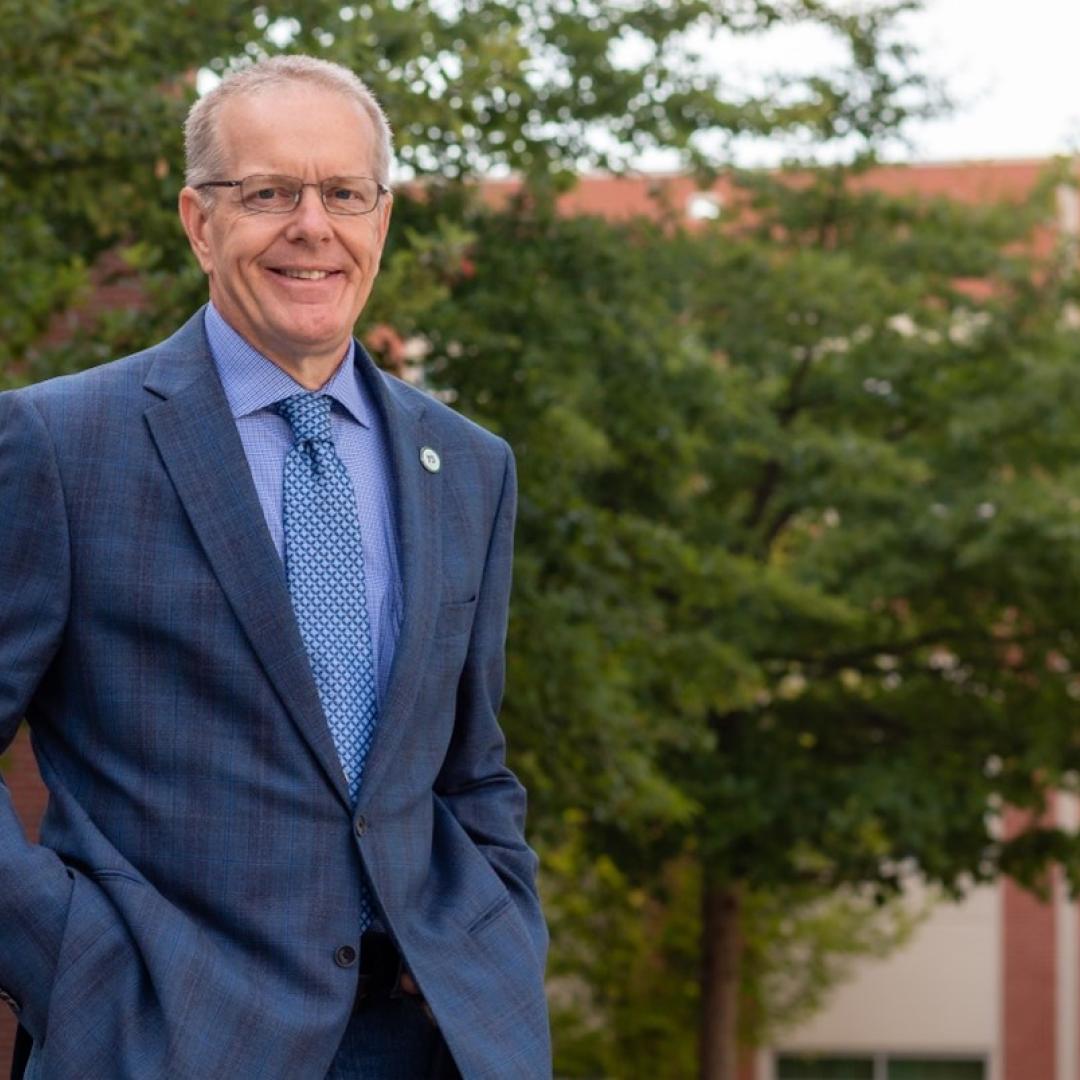
Filter News
Area of Research
- Biology and Environment (15)
- Clean Energy (19)
- Climate and Environmental Systems (1)
- Electricity and Smart Grid (1)
- Functional Materials for Energy (1)
- Isotopes (1)
- Materials (8)
- Materials for Computing (1)
- National Security (1)
- Neutron Science (4)
- Nuclear Science and Technology (1)
- Supercomputing (4)
News Type
News Topics
- (-) Environment (43)
- 3-D Printing/Advanced Manufacturing (49)
- Advanced Reactors (12)
- Artificial Intelligence (31)
- Big Data (11)
- Bioenergy (24)
- Biology (22)
- Biomedical (18)
- Biotechnology (7)
- Buildings (15)
- Chemical Sciences (33)
- Clean Water (1)
- Climate Change (24)
- Composites (10)
- Computer Science (62)
- Coronavirus (17)
- Critical Materials (11)
- Cybersecurity (18)
- Decarbonization (22)
- Education (3)
- Element Discovery (1)
- Energy Storage (45)
- Exascale Computing (12)
- Fossil Energy (1)
- Frontier (16)
- Fusion (14)
- Grid (18)
- High-Performance Computing (31)
- Irradiation (1)
- Isotopes (21)
- ITER (2)
- Machine Learning (14)
- Materials (67)
- Materials Science (53)
- Mercury (2)
- Microelectronics (1)
- Microscopy (18)
- Molten Salt (2)
- Nanotechnology (28)
- National Security (20)
- Net Zero (4)
- Neutron Science (56)
- Nuclear Energy (33)
- Partnerships (28)
- Physics (24)
- Polymers (13)
- Quantum Computing (10)
- Quantum Science (28)
- Renewable Energy (1)
- Security (11)
- Simulation (11)
- Software (1)
- Space Exploration (3)
- Statistics (1)
- Summit (21)
- Sustainable Energy (36)
- Transformational Challenge Reactor (4)
- Transportation (32)
Media Contacts
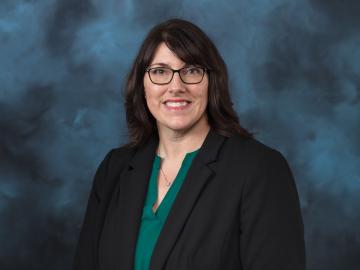
Erin Webb, lead for the Bioresources Science and Engineering group at Oak Ridge National Laboratory, has been elected a Fellow of the American Society of Agricultural and Biological Engineers — the society’s highest honor.
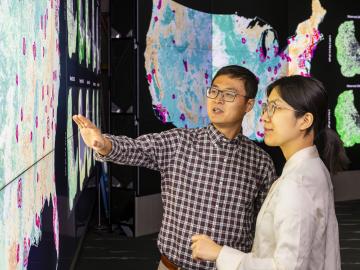
Scientists at ORNL completed a study of how well vegetation survived extreme heat events in both urban and rural communities across the country in recent years. The analysis informs pathways for climate mitigation, including ways to reduce the effect of urban heat islands.
The United States could triple its current bioeconomy by producing more than 1 billion tons per year of plant-based biomass for renewable fuels, while meeting projected demands for food, feed, fiber, conventional forest products and exports, according to the DOE’s latest Billion-Ton Report led by ORNL.
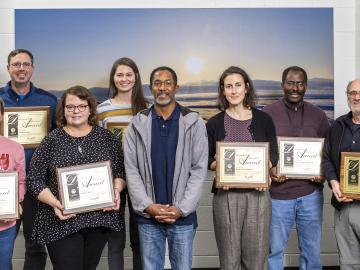
ORNL Environmental Sciences Division Director Eric Pierce presented the division’s 2023 Distinguished Achievement Awards at the organization’s December all-hands meeting.
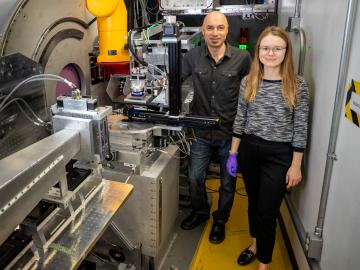
Scientists from Stanford University and the Department of Energy’s Oak Ridge National Laboratory are turning air into fertilizer without leaving a carbon footprint. Their discovery could deliver a much-needed solution to help meet worldwide carbon-neutral goals by 2050.
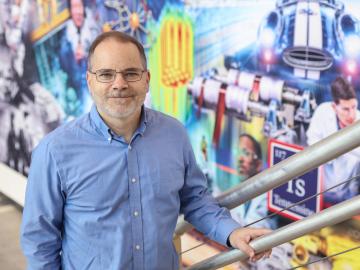
ORNL has been selected to lead an Energy Earthshot Research Center, or EERC, focused on developing chemical processes that use sustainable methods instead of burning fossil fuels to radically reduce industrial greenhouse gas emissions to stem climate change and limit the crisis of a rapidly warming planet.

Yaoping Wang, postdoctoral research associate at ORNL, has received an Early Career Award from the Asian Ecology Section, or AES, of the Ecological Society of America.
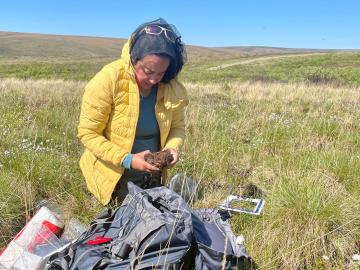
Wildfires are an ancient force shaping the environment, but they have grown in frequency, range and intensity in response to a changing climate. At ORNL, scientists are working on several fronts to better understand and predict these events and what they mean for the carbon cycle and biodiversity.
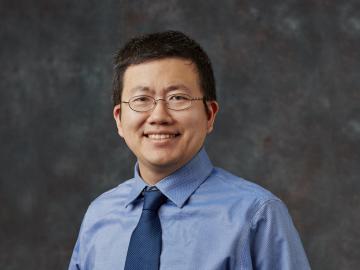
Shih-Chieh Kao, manager of the Water Power program at ORNL, has been named a fellow of the American Society of Civil Engineer’s Environmental & Water Resources Institute, or EWRI.
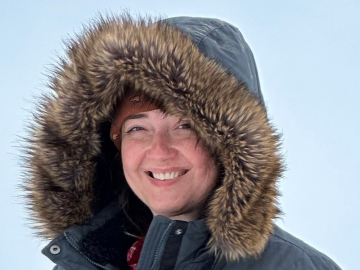
Colleen Iversen, ecosystem ecologist, group leader and distinguished staff scientist, has been named director of the Next-Generation Ecosystem Experiments Arctic, or NGEE Arctic, a multi-institutional project studying permafrost thaw and other climate-related processes in Alaska.


